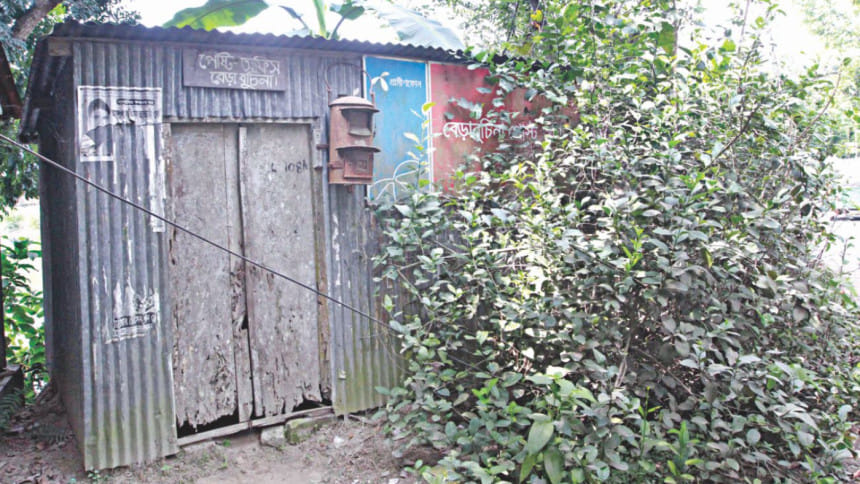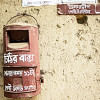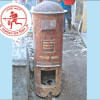Barely surviving, yet serving

The post office is in a two-storey building on a busy street in the city's Mohammadpur area. Three post boxes of three colours are on its yard. If it were not for those, people probably would not realise that it was a post office. Over the years the buildings surrounding it have changed but the post office stayed almost the same.
The inside of the post office is dark and damp and the employees at the six counters had one computer, a laptop. Most of the service seekers queuing up were women and they had books in their hands.
The Daily Star correspondent visited this post office twice, six months apart, to see how it moved ahead.
In March, then postmaster Golam Mahbub said he had heard a lot about post office service development and digitisation. He predicted that he would be retiring in July without even a computer on his desk.
“It doesn't seem essential to me,” he had said, sitting at his ground-floor office desk. In his career, he had to deal with changing priorities of postal services but not much digitalisation.
He was right. When this correspondent visited the same office on October 04, the new postmaster was there but no computer on his desk, just a CCTV camera monitor.
There are only two computers in this relatively large post office. Most of the work is still done on paper. Eight operators do clerical jobs along with 19 postmen.
Even though the number of letters has fallen sharply in the age of mobile telephones, instant messaging and texts, the number of registered letters has increased significantly.
However, financial services seemed to be the key.
The time The Daily Star correspondent spent there, many women visited the post office, either to deposit or withdraw money.
New Postmaster Giash Uddin Bhuyan said every day more than Tk 5 crore is transacted at the post office and almost all of it is done on paper. “There was a money counting machine but it went out of order a long time ago. We need one badly.”
Golam in March had talked about the broken machine and explained how badly the post office needed a working machine.
Six months have passed and postmasters have changed but the office still has a broken machine.
Giash said the service would be better if three more operators and three more postmen were appointed. He also said they did not have enough savings forms and savings books.
The post office employees should be trained on digitalisation of postal services so that they could cope with the changing times, he said.
The drop in the number of personal letters and increase in other services, like financial, registered letters and package deliveries is seen in rural and small-town post offices as well.
Md Hazrat Ali, 50, was a university student when a post office was set up at a room of Khorkhori High School in Rajshahi. He was appointed as its postmaster on May 27, 1987.
“Khorkhori Hat was a busy place. I used to deliver as much as 150 letters and money orders worth Tk 1.30 lakh each day in the early days,” he said.
Hazrat, who runs the “extra departmental branch post office” along with a postman and a runner working four to six hours a day, said he deals with roughly 15 to 50 registered letters a day now.
Regular mails decreased over the years at the post office which is one among 8,138 such post offices that are run by part-time employees.
“The number of personal letters has come down to zero but documents from courts, offices, banks, and businesses have increased over the years,” said Hazrat.
He said the mailbox outside his post office remains almost unused. “I open it [mailbox] regularly. Most of the times, I find it empty,” he said. He could not remember the last time he found a mail in the box.
Mokhlesur Rahman joined the postal department in 1985 and he is now the postmaster of Bazar Post Office in Pabna town.
They used to deal with over 250 personal and registered mails a day but now they handle hardly 50 registered and no ordinary or personal mails, said Mokhlesur.
Even though a new mobile money order service had been launched, Mokhlesur said there were not many customers of that.
Prospect of another services keep his post office buoyant. While some services show downtrend, the number of deposit holders has increased in the last few years due to the handsome profits the customers get.
“Several hundred deposit holders, who used to deposit their savings in banks only a few years ago, now deposited their savings at the post office,” said Mokhlesur.
But apart from digitalisation, infrastructural issues and employees' grievances also plague the sector.
While expansion and transformation are taking place, the shabby state of many rural post offices highlights the concept that not only quantity, the quality matters too.
Tangail's Bera Buchina Post Office is a case in point. Housed in a worn-out corrugated iron sheet structure with a leaky ceiling and broken door, a rusty iron letter box, enveloped in dust, dangles beside a sidewall at the six-foot by eight-foot post office.
The office seems to have hardly been in use.
Postmaster Hasna Begum was found washing clothes at her home nearby. She later came to the office and opened its doors.
Sitting in front of a broken wooden table, Hasna said due to such state of the post office, she has taken away all papers, documents and the office computer to her house, lest they get stolen.
Hasna said even though the post office is supposed to provide over two dozen services, only a few ordinary and registered letters of locals, money orders, and documents of job seekers are handled at her office.
Contacted, Md Amanullah Majumder, deputy post master general in Tangail, acknowledged that many rural post offices were in a really bad shape. “New buildings are being constructed for a few of them. Locals donated their land for the purpose,” he added.
Infrastructural issues aside, the postal department sees another challenge. While manpower had been strengthened, many ad-hoc staffers' dream of their jobs getting regularised remained unfulfilled.
Pabna's Abdus Salam Khan joined as an extra departmental agent (EDA) in a newly built rural postal centre in 1993 at the age 35 with a monthly honorary allowance of Tk 374. Approaching his 60s, Salam is still serving as an EDA on an allowance of Tk 2,520.
Two of Salam's colleagues Md Abdul Hamid and Md Eusuf Ali, who also served as extra departmental delivery agent and extra departmental mail carrier respectively, have also grown old with their hopes of permanent positions fading.
The three make ends meet either by tilling land or running small businesses in their village.
Despite the challenges, the postal service in Bangladesh continues to serve the people.
Rural people get numerous services, including internet surfing, remittance transfer, video calls, filling up of applications for admission to colleges and universities, and gathering information about agriculture, education and health.

 For all latest news, follow The Daily Star's Google News channel.
For all latest news, follow The Daily Star's Google News channel. 







Comments